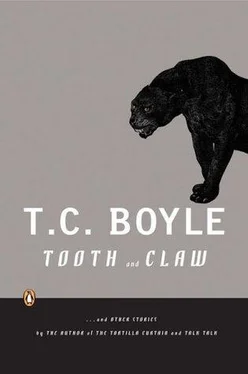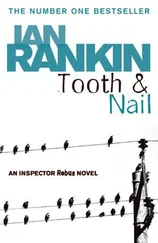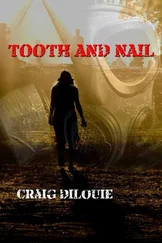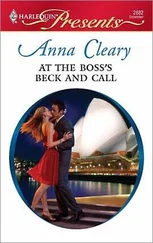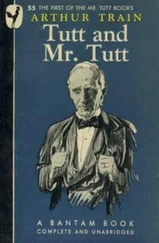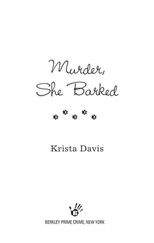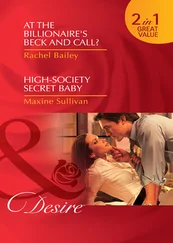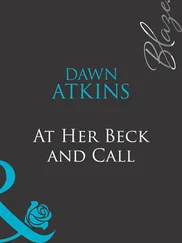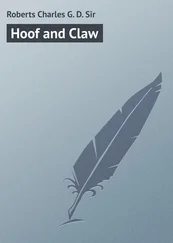The fact was that I hadn’t wanted a son, hadn’t planned on it or asked or prayed or hoped for or even imagined it. I was twenty-four. My wife was pregnant and I raged at her, Get rid of it, you’re ruining my life, we can’t afford it, you’re crazy, get rid of it, get rid of it . She was complete in herself, sweet-faced and hard-willed, and mine was a voice she couldn’t hear. She went to Lamaze classes, quit drinking, quit smoking, did her exercises, read all the books. My son was born in the Kaiser hospital in Panorama City, eight pounds, six ounces, as healthy as a rat and beautiful in his own way, and I was his father, though I wasn’t ready to be. He was nine months old when one of my drinking buddies — call him Chris, why not? — came for the weekend and we went on a tear. My wife put up with it, even joined in a bit, and on Monday morning, when she had to go in early to work, Chris and I took her out for breakfast.
The day beat down like a hammer and everything in the visible world shone as if it had been lit from within. We’d been up till four, and now it was seven, and while we were waiting for a table Chris and I ducked into the men’s room and alternated hits from a pint of Smirnoff we were planning to doctor our fresh-squeezed orange juice with. So we were feeling fine as we chased the waffles around our plates and my wife smiled and joked and the baby unfurled his arms and grabbed at things in high baby spirits. Then my wife touched up her makeup and left, and right away the mood changed — here was this baby, my son, with his multiplicity of needs, his diapers and his stroller and all the rest of it, and I was in charge.
We finally hit upon the plan of taking him to the beach, to get a little sun, throw a Frisbee, let the sand mold itself to us through the long, slow-simmering morning and into the afternoon and the barbecue I was planning for Chris’ send-off. The beach was deserted, a board-stretched canvas for gulls and pelicans and snapping blue waves, and as soon as we stepped out of the car I felt everything was all right again. My son was wearing nothing but his diaper, and Chris and I were laughing over something, and I tossed my son up in the air, a game we played, and he loved it, squealing and crying out in baby ecstasy. I tossed him again, and then I tossed him to Chris and Chris tossed him back, and that was when I lost my balance and the black sea-honed beak of a half-buried rock loomed up on me and I saw my future in that instant: I was going to drop my son, let him slip through my fingers in a moment of aberration, and he was going to be damaged in a way that nobody could repair.
It didn’t happen. I caught him, and held on, and I never let go.
PEOPLE CAN TALK, they can gossip and cavil and run down this one or the other, and certainly we have our faults, our black funks and suicides and crofters’ wives running off with the first man who’ll have them and a winter’s night that stretches on through the days and weeks like a foretaste of the grave, but in the end the only real story here is the wind. The puff and blow of it. The ceaselessness. The squelched keening of air in movement, running with its currents like a new sea clamped atop the old, winnowing, harrowing, pinching everything down to nothing. It rakes the islands day and night, without respect to season, though if you polled the denizens of Yell, Funzie and Papa Stour, to a man, woman, lamb and pony they would account winter the worst for the bite of it and the sheer frenzy of its coming. One January within living memory the wind blew at gale force for twenty-nine days without remit, and on New Year’s Eve back in ‘92 the gusts were estimated at 201 mph at the Muckle Flugga lighthouse here on the northernmost tip of the Isle of Unst. But that was only an estimate: the weather service’s wind gauge was torn from its moorings and launched into eternity that day, along with a host of other things, stony and animate alike.
Junie Ooley should have known better. She was an American woman— the American ornithological woman is the way people around town came to refer to her, or sometimes just the bird woman —and she hadn’t just barely alighted from the ferry when she was blindsided by Robbie Baikie’s old one-eyed tom, which had been trying to inveigle itself across the roof tiles of the kirk after an imaginary pigeon. Or perhaps the pigeon wasn’t imaginary, but by the time the cat blinked his eyes whatever he had seen was gone with the wind. At any rate, Junie Ooley, who was at this juncture a stranger to us all, came banking up the high street in a store-bought tartan skirt and a pair of black tights climbing her queenly legs, a rucksack flailing at the small of her back and both hands clamped firmly to her knit hat, and she never saw the cat coming, for all her visual acuity and the fine-ground photographic lenses she trucked with her everywhere. The cat — his name was Tiger and he must have carried a good ten or twelve pounds of pigeon-fed flesh on his bones — caught a gust and flew off the kirk tiles like a heat-seeking missile locked in on Junie Ooley’s hunched and flapping form.
The impact was dramatic, as you would have had reason to testify had you been meditating over a pint of bitter at the rattling window of Magnuson’s Pub that day, and the bird woman, before she’d had a chance even to discover the whereabouts of her lodgings or offer up a “good day” or “how do you do?” to a single soul, was laid out flat on the flagstones, her lips quivering unconsciously over the lyrics to a tune by the Artist Formerly Known as Prince. At least that was what Robbie claimed afterward, and he’s always been dead keen on the Artist, ever since he came by the CD of Purple Rain in the used-disc bin of a record shop in Aberdeen and got it for less than half of what it would have cost new. We had to take his word for it. He was the first one out the door and come to her aid.
There she was, flung down on the stones like a wilted flower amidst the crumpled stalks of her limbs, the rucksack stuffed full of spare black tights and her bird-watching paraphernalia, her kit and dental floss and all the rest, and Tiger just pulling himself up into a ball to blink his eyes and lick at his spanned paws in a distracted way, when Duncan Stout, ninety-two years on this planet and in possession of the first Morris automobile ever manufactured, came down the street in that very vehicle at twice his normal speed of five and a half miles per hour, and if he discerned Junie Ooley lying there it was anybody’s guess. Robbie Baikie flailed his arms to head off Duncan’s car, but Duncan was the last man in these islands to be expecting anything unexpected out there in the middle of the high street designed and reserved exclusively for the traffic of automobiles and lorries and the occasional dithering bicycle. He kept coming. His jaw was set, the cap pulled down to the orbits of his milk-white eyes. Robbie Baikie was not known for thinking on his feet — like many of us, he was a deliberative type — and by the time he thought to scoop Junie Ooley up in his arms the car was on them. Or just about.
People were shouting from the open door of the pub. Magnus Magnuson himself was in the street now, windmilling his arms and flinging out his feet in alarm, the bar rag still clutched in one hand like a flag of surrender. The car came on. Robbie stood there. Hopeless was the way it looked. But then we hadn’t taken the wind into account, and how could any of us have forgotten its caprices, even for a minute? At that crucial instant, a gust came up the canyon of the high street and bowled Robbie Baikie over atop the bird woman even as it lifted the front end of Duncan’s car and flung it into the near streetlamp, which never yielded.
Читать дальше
